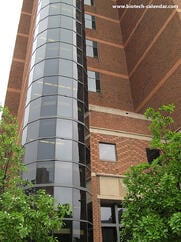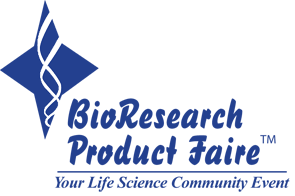 Parkinson's Disease is a devastating neurodegenerative disease that affects people's motor functions. As of today, there are no cures for Parkinson's Disease, and treatments are only able to alleviate symptoms. Researchers across the nation are heavily studying the disease, with the goal of learning more about the onset and progress of the disease to help scientists develop treatment methods.
Parkinson's Disease is a devastating neurodegenerative disease that affects people's motor functions. As of today, there are no cures for Parkinson's Disease, and treatments are only able to alleviate symptoms. Researchers across the nation are heavily studying the disease, with the goal of learning more about the onset and progress of the disease to help scientists develop treatment methods.
A team of researchers from Thomas Jefferson University focusing on Parkinson's Disease have recently found a way to produce the molecule GM1 ganglioside that, in past research, has shown potential in both relieving Parkinson's Disease symptoms and slowing its progression.
GM1 ganglioside is a molecule produced by nerve cells in the brain. In patients with Parkinson's Disease, however, this molecule is found in much lower amounts than in the brains of healthy individuals. Knowing that people with higher amounts of the molecule did not suffer from the disease, past researchers found that administering GM1 ganglioside to Parkinson's patients was beneficial. Creating the molecule has proven to be extremely difficult, and current methods for obtaining it involve extraction from cow brains.
|
RELATED ARTICLES: Athens Scientists Granted $2.1M for Vitamin Research |
Lead researchers on this project, Professor Jay Schneider, Ph.D., from the Department of Pathology, Anatomy and Cell Biology at the Sidney Kimmel Medical College explained, "GM1 ganglioside has shown great promise in Parkinson's patients. However, considering the difficulties with the manufacture of GM1 and its delivery to the brain, we wanted to see if we could coax the brain to make more of its own GM1."
After some extensive research, the Philadelphia team found that the enzyme sialidase was able to convert other ganglioside molecules found in the brain into GM1 ganglioside molecules. The team then injected sialidase through a pump into mouse models with simulated Parkinson's Disease where they saw a similar neuronal protection in the mice as when others were injected with GM1 ganglioside directly.
"We were very excited to see that this could work in the mouse model," said Dr. Schneider. "As long-term delivery of sialidase enzymes to the brain would require implantation of a pump system, which might not be optimal, we are currently working on alternative gene therapy approaches to enhance GM1 levels in the brain."
 Thomas Jefferson University in Philadelphia is a leader in life science research and publications. Hundreds of life science researchers who work throughout dozens of different disciplines and centers to solve leading scientific questions receive millions of dollars in annual funding to help further their work. This funding comes from private and public donations and grants, giving the university millions of dollars for laboratories.
Thomas Jefferson University in Philadelphia is a leader in life science research and publications. Hundreds of life science researchers who work throughout dozens of different disciplines and centers to solve leading scientific questions receive millions of dollars in annual funding to help further their work. This funding comes from private and public donations and grants, giving the university millions of dollars for laboratories.
In the 2015 fiscal year, the university received more than $48.6 million in funding from the National Institutes of Health (NIH) alone. Research projects benefiting from this funding include:
- The National Cancer Institute awarded Thomas Jefferson a $2.7 million grant for funding to support the cancer research activities of the Kimmel Cancer Center (KCC), in order to increase the survival and quality of life of cancer patients by translating basic research discoveries into new strategies to prevent, diagnose, monitor and cure human cancer.
- The NIH awarded Thomas Jefferson University a five year $2.6 million grant to study noninvasive imaging methods to stage and detect prostate cancer.
- Thomas Jefferson University received a four year, $2.5 million grant from the NIH to study cancer gene activation in lung cancer.
Laboratory suppliers interested in marketing lab supplies to active researchers at Thomas Jefferson University in Philadelphia are encouraged to participate in the 7th Annual BioResearch Product Faire™ Event coming up on May 13, 2016. At this popular event, lab suppliers are able to display their tools and technologies for over 115 active life science researchers looking to discover new products and tools to use in their labs.
For more information about exhibiting at the Thomas Jefferson University event on May 13, 2016, please visit the link below:
Interested in marketing lab supplies to researchers in Pennsylvania? Learn more about participating in the BioResearch Product Faire™  Events at the University of Pennsylvania and the University of Pittsburgh by visiting the links below:
Events at the University of Pennsylvania and the University of Pittsburgh by visiting the links below:
17th Annual University of Pennsylvania BioResearch Product Faire™ Event - May 12, 2016
17th Annual University of Pittsburgh BioResearch Product Faire™ Event - June 16, 2016


